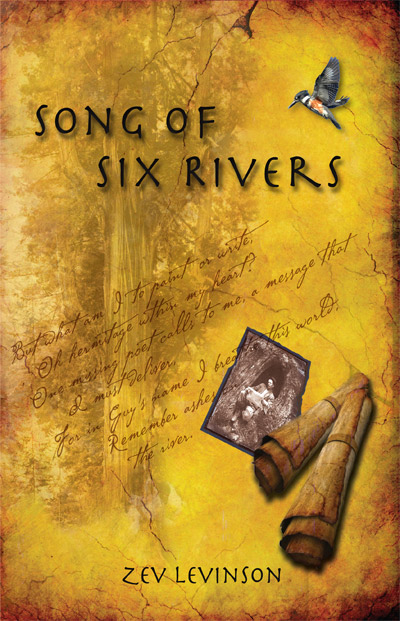Song of Six Rivers
Song of Six Rivers relates one man’s life-changing experiences throughout the Humboldt Bay region of northern California, depicting the area’s geography and history along the way, through both poetry and archival photography. When the muse of this epic poem, Guy Kuttner, died unexpectedly, Zev Levinson heard his voice imploring him to sing of the land they both love. As a roving teacher of poetry in the schools, often staying in far-flung places, Zev had come to know the Six Rivers terrain and communities intimately. He put his pen to the task of meeting Guy’s daunting challenge, confronting mortality and loss as he ventured to understand our connection to earth. At its heart, this endeavor strives to weave poetry into the everyday lives of those who dwell behind the redwood curtain.
To order through IndieBound, a community of independent bookstores, click here.
To order the book through Amazon, click here.
Bookstores can order through Ingram.
Praise for Song of Six Rivers Song of Six Rivers runs deep. On a journey of memory inspired by men he revered, Zev Levinson brings landscapes and Humboldt history reflected in evocative photographs vividly to life. His song conveys a personal bond within nature with an immediacy of experience and a sense of the sacred that is heightened by awareness of death.”
— Stephen Most, author of River of Renewal: Myth and History in the Klamath Basin and Stories Make the World: Reflections on Storytelling and the Art of the Documentary
“In a vast and sweeping poem, Zev Levinson offers us a bold song from the frontiers of all waters and species, living and dead, to ‘build a bridge from grief.’ Risky and full of heart, these words of loss and joy ring with a mythic quality that summons native spirits—Karuk, Yurok, Hupa, Sinkyone and Wiyot—as well as the voices of such poets as Whitman, Coleridge and Ginsberg. We enter another realm bridging fish eggs among school desks and redwood hymns, calling forth the sanctity of the forest. Written outside of time among brethren druid trees, Levinson’s playful, grand and profound poem-song (a tribute to both his father and to his mentor Guy, everyman) moves from outpost ghosts to a leaf pitched in a waterfall to an insect on the smallest tree—a benediction to hold and restore mysteries.”
—Susan G. Wooldridge, author of poemcrazy: freeing your life with words
“This is a quirky lifework poem with a coherent and positive vision of possibility in the face of loss. It is a truly beautiful piece about the sorrow and goodness of Californians in redwood country, and as part of it being about goodness, it evokes wonderful practical things that people can do to make the world better: write poetry, fix trails, teach poetry, remember, relax, let go, love, get older on bicycles in the fog by marshes, even while the economic drama of the country and the state changes some things, but leaves some things recognizable—all in Levinson’s rootsy and updated romantic idiom because Levinson needs a language commensurate with his unarmored joy.
It’s as if poetry lets people go back a bit and forward at the same time to get things right for us now. The photos all suggest questions about who is watching this scene. By way of an answer, this poem enacts the creation of a fabulist, healthy point of view of a flower-vendor poet in Arcata turned teacher-poet in the schools, a figure that emerges like a John Clare shepherd and a large-souled character out of Whitman. And there are many wonderful lines in it like ‘You know the fauna watches you.’ The fauna were also watching Wallace Stevens.”
—David Blair, author of Arsonville and Friends with Dogs

